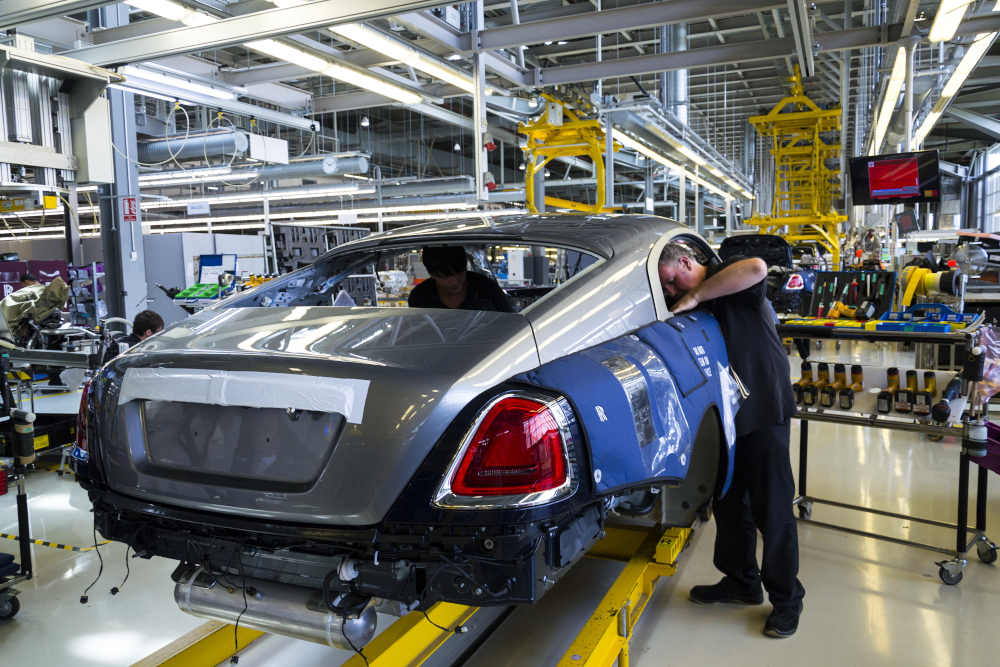
London, UK – A cross-party campaign group has today found that the UK and Germany could rapidly fall behind the likes of China and South Korea unless they begin to address shortcomings in their economies.
In their latest report, "The Road to Recovery: What the UK can learn from Germany”, the Institute for Prosperity has found that both nations are losing share of world trade in the face of the growth of the East.
It reports that Germany’s ultra-competitiveness has driven many of its major export customers – predominantly other EU nations – into deflationary policies resulting in lower economic growth and reduced demand for its products, while the UK is not competitive enough to sell more goods to the rest of the world.
The Institute also concludes that the UK, with a depleted manufacturing base, faces an uphill battle when it comes to competing against the East. The report argues that if the UK needs to rebalance its economy through a ‘manufacturing revival’ after coronavirus it must look to elements of the German economy by adopting more pro-manufacturing policies including increasing investment in R&D and more support for technical training.
Caroline Flint, Chair of the Institute for Prosperity's Advisory Board, said: “No one can deny the shifting of the economic centre of gravity from the West to the East.
“Many countries in the West – the UK and Germany included – have a growth problem, and it’s because we’re rapidly losing share of world trade. Germany, even with its strong manufacturing base, is falling victim to an economy which is overly competitive, damaging its biggest customers.
“The UK has its own growth problem, which is the product of having a deeply unbalanced economy and weak manufacturing industry. A manufacturing revival is critical to our bounce back from COVID, but the UK government must do more.”
In the UK, manufacturing makes up less than 10% of GDP, a huge reduction over the last 40 years, and the Institute puts this down to the lack of support for British manufacturers and an uncompetitive economy.
Germany on the other hand has a strong and robust manufacturing base and is famed for its vehicle production. Its manufacturing industry makes up to almost 20% of the German GDP, almost double that of the UK, but its under-priced exports have driven much of the rest of the Eurozone intro deflation and slow growth.
In the report, the Institute draws several conclusions on how Germany supports its manufacturing base and proposes the UK adopts some of them itself.
Key arguments in the pamphlet:
- The UK should follow the German model of providing support in the form of supply-side economic measures.
- Britain needs more investment in education and training. Around 50 percent of all school leavers in Germany undertake vocational training, compared to about 25 percent in the UK.
- Germany has one of the world’s highest expenditures on R&D at $118.8bn per year to the UK’s $44.8bn – Britain is being left behind.
- The German banking sector is also much more orientated to providing long-term finance for industry in comparison to Britain.
- Germany has an edge over the UK on infrastructure, having historically invested much more in this area.
- The Institute supports a competitive exchange rate policy to make the price of British goods more appealing globally.
The UK underwent rapid deindustrialisation in the 1980s, whereas Germany kept manufacturing at the core of its economy, which the report says is a key reason for Britain's current economic stagnation. This left the country's less prosperous regions with fewer goods to sell to the rest of the world.
The report suggests that if the UK were to follow German measures and revitalise its manufacturing industry, it would bring investment, jobs and prosperity to these declining areas that were once the industrial heartlands of Britain.
John Mills, Founder of the Institute for Prosperity, said: "We are rapidly falling behind China and other manufacturing powerhouses in the East because they are gaining a greater share of world trade.
“We found that while Germany is in many senses the manufacturing powerhouse of Europe, its growth has been weakened by it supressing the economies of its export markets. However, there is a lot the UK must learn from Germany on manufacturing. We need to take a leaf out of their book on R&D, manufacturing finance and skills training if we want to compete on the world stage again.
“Aside from that, the UK has a real, deep growth problem caused by deindustrialisation. There is a real risk that living standards will be lower in 2030 than in 2019, or even 2007, but this can be prevented with a manufacturing revival.”
Mills also commented that the pandemic exposed dire national security threats to Britain due to the decline in the manufacturing industry, meaning it was less prepared than Germany to produce vital items like ventilators and PPE domestically.
John Mills, added: “A strong manufacturing base is absolutely vital to national security, and the pandemic certainly exposed our manufacturing capability. A weak and diminished manufacturing industry means we’re more reliant on other, often less stable and undemocratic nations for vital supplies.”
Founded in 2020, the Institute for Prosperity has focused its research on reviving communities in the UK that have suffered from a steep decline in manufacturing over recent decades.
